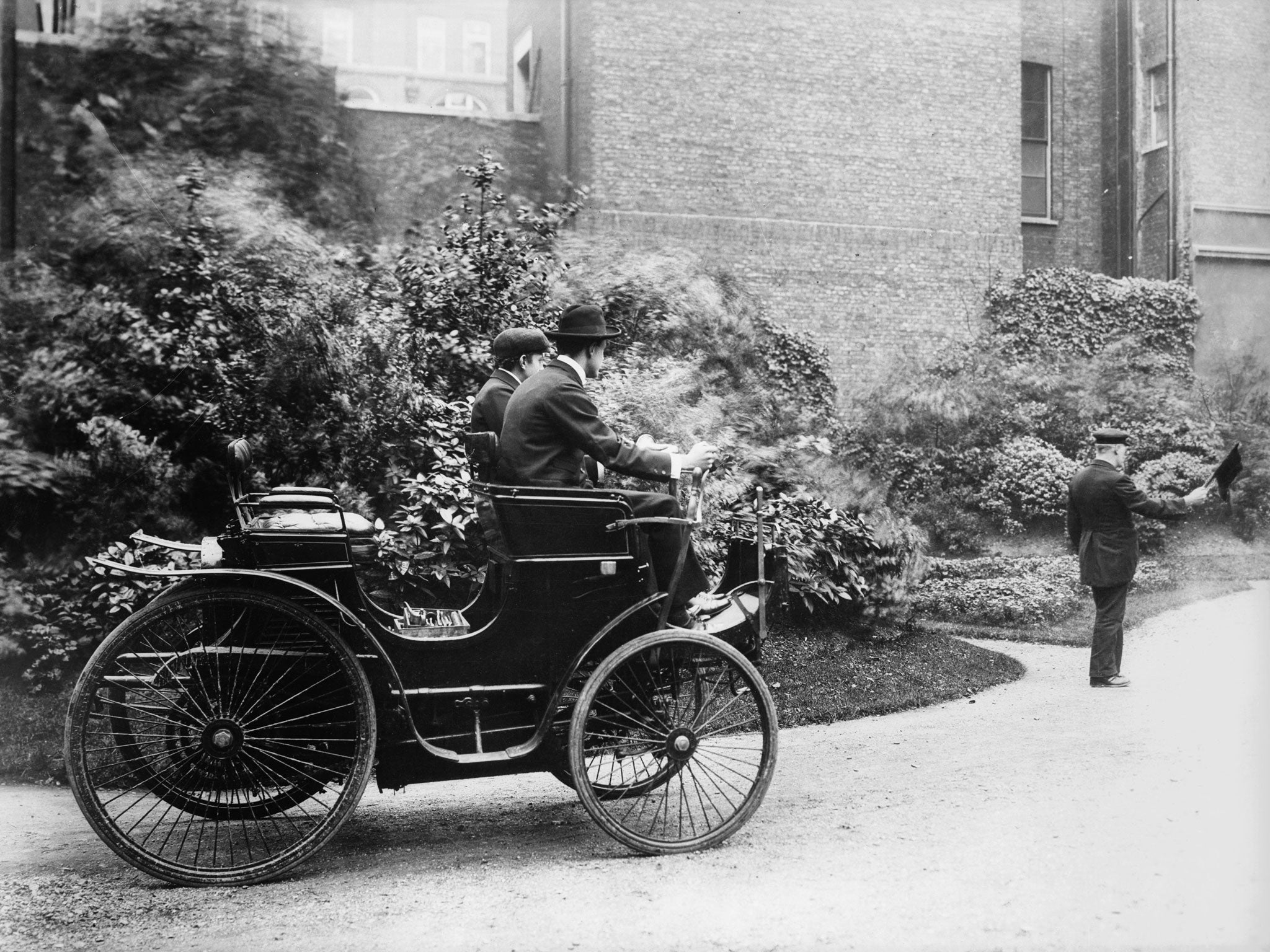Rhodri Marsden's Interesting Objects: Lord Winchelsea's red flag
The Locomotive Act 1865 stipulated that any self-propelled road vehicle had to be preceded by a person walking at least 60 yards ahead, carrying a red flag

150 years ago tomorrow, Lord Palmerston's Liberal government passed a law that, according to one writer, "effectively stopped innovation in powered road transport in Britain for over a quarter of a century". The Locomotive Act 1865 became known as the Red Flag Act, thanks to its extraordinary stipulation that any self-propelled road vehicle had to be preceded by a person walking at least 60 yards ahead, carrying a red flag.
The Act followed intense lobbying from horse-drawn carriage operators and the public railway industry. And in a rather severe response to the dangers posed by road vehicles, the Red Flag Act also brought into force the world's first road speed limit: 4mph in the country, 2mph in towns, and a £10 fine for "speeding".
As motoring innovation gathered pace, the Act – originally passed with hefty traction engines in mind – looked increasingly absurd, and many campaigned against it. It was finally repealed on 14 November 1896, when the Locomotives on Highways Act scrapped the flag and raised the speed limit to 14mph.
Motor car fans rejoiced. In celebration, a London to Brighton rally, billed as "The Emancipation Run", began with a breakfast at the Charing Cross Hotel, where Tory politician Lord Winchelsea symbolically ripped a red flag in half. (That rally still takes place each November.)
But maybe we had it lucky in Britain. That same year, 1896, a law was proposed in Pennsylvania requiring all drivers of horseless carriages, "upon chance encounters with cattle or livestock to (1) immediately stop the vehicle, (2) immediately and as rapidly as possible disassemble the automobile, and (3) conceal the various components out of sight behind nearby bushes until equestrian or livestock is sufficiently pacified."
Join our commenting forum
Join thought-provoking conversations, follow other Independent readers and see their replies
Comments
Bookmark popover
Removed from bookmarks